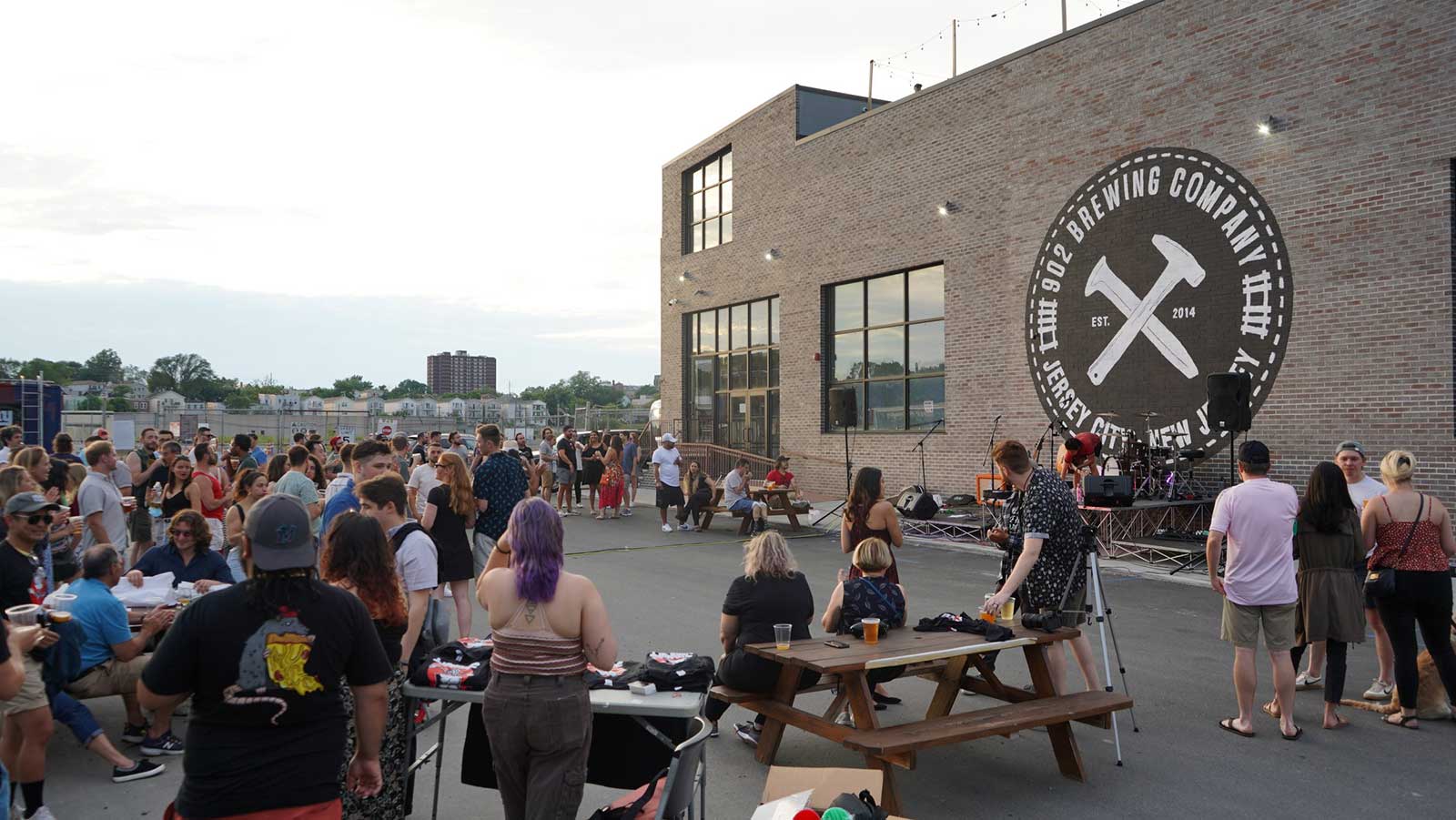
A number of nitpicky rules took effect last month that restrict the way New Jersey breweries can run their business, stifling one of the state’s fastest-growing industries.
The list of special conditions handed down by the Division of Alcohol Beverage Control (ABC) prohibits things like food trucks, caps the number of special events held at a venue, and even limits the size of their televisions.
“The system is broken and everyone knows it,” said Colby Janisch, COO at 902 Brewing Company in Jersey City.
Janisch believes that the ABC is caving to the demands of owners of liquor licenses, which on average cost $350,000 in New Jersey. “They’re afraid they’re going to lose the value of a license if they allow anyone else, like a brewery or small restaurant, to sell beer and wine,” Janisch said.
Complicating the situation for many breweries is that, in addition to these new rules, local restaurants and liquor stores often don’t carry local craft beers, leaving brewers to rely on home deliveries to survive, according to Scott Wells, board member of the Brewers Guild of New Jersey and director of sales at Bolero Snort Brewery.
Wells calls the state’s system of liquor licenses a “legal monopoly” and believes the table is tilted by owners who hoard unused licenses to stamp out competition in their region.
“The state regulations have really stacked the cards against our breweries,” said Wells, arguing that the tasting rooms in New Jersey are losing customers to breweries across state lines that thrive with more lenient rules that allow things like food trucks.
New York, for instance, has made selling alcohol easier by offering a second type of license for only beer and wine. Across the Hudson River, a liquor license costs $4,352, but a beer or wine license costs between $960 and $1152. (In New Jersey, licenses usually cost around a hundred times that amount.) Last December, the State Liquor Authority made it even easier for New York establishments to apply for a license by granting a temporary license.
“The breweries and restaurant lobbies in New York work well together because liquor licenses are so cheap,” Janisch said.
Fortunately, the plight of breweries has a growing audience in Trenton. “The ABC is an agency that has been captured by the 6,000 restaurant liquor license owners,” State Senator Michael Testa (R-Vineland) said on a podcast episode of the AG Craft Beer Cast. “They’re afraid of competition from less than 200 breweries? That makes no sense.”
The idea for liquor licenses began after Prohibition ended, which sought to put control on the market. Originally municipalities were allowed to issue one license for every 1,000 residents. In 1969, the law was further limited to one license per 3,000 residents and remains that way today, although municipalities are allowed to make exceptions.
A movement to reform the system seemed to gain traction during the pandemic. Relaxing the rules for selling alcohol, brewers and restaurants argued, could be a huge boon to the economy at a time when the hospitality industry is still feeling the pinch. The profit margin on beer, wine, and liquor is much greater than on food because the labor required to sell drinks is much lower. A drink takes only seconds to serve, but an entree takes 15 minutes and requires a kitchen staff and servers.
In 2018, a bill (A-3494) was sponsored by Hudson County’s Assemblyman Raj Mukherji that would create a restricted license, for selling only beer and wine, but it has languished in the state assembly.
“A beer and wine license is not going to affect the value of a liquor license because they are still scarce,” said Tory Aunspach, principal owner at Cafe Alyce in Bergen Hill. “No one should have to pay a million dollars for a piece of paper to sell booze.”
Meanwhile, Wells believes there is a way to appease the liquor lobby while opening the door for more establishments to share in the wealth of selling alcohol — a state buy-back program could give bars a chance to cash in their licenses at market value before reshuffling the deck and letting more venues hold licenses. The original license holders would still have exclusive rights to sell liquor.
The New Jersey Licenses Beverage Association will host a meeting today, August 24th, to discuss possible reforms. Assembly Speaker Craig Coughlin (D-Middlesex), who has come to the defense of breweries in the past, is purportedly working on legislation that would allow any venue with a kitchen to apply for a $500 license. But there is so much money tied up in politics, Wells still sees the mug half empty. “We’ve seen about 25 bills like that before,” he said.